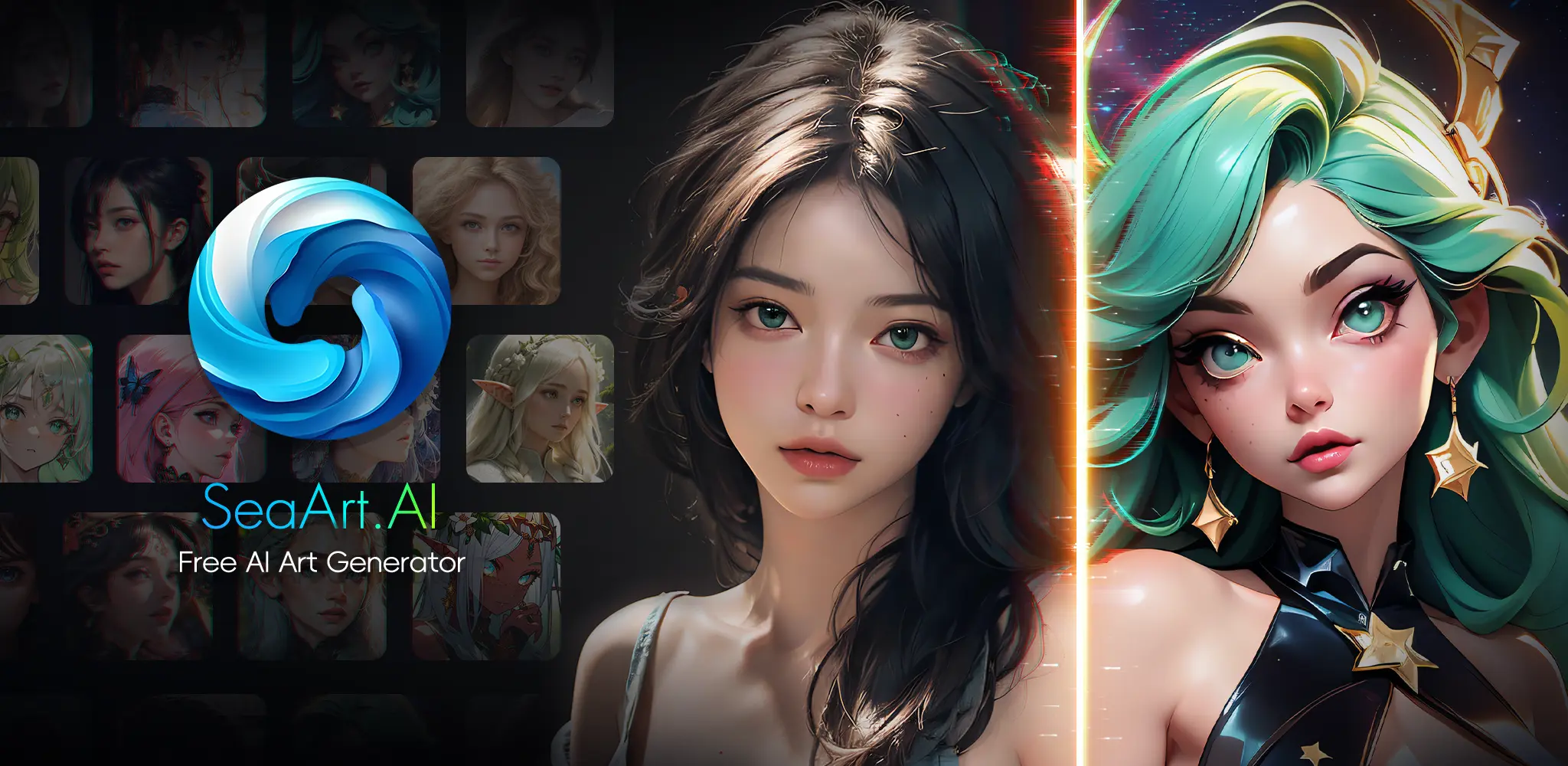
Flux AI Image Generator: Superior to Stable Diffusion and SDXL in Quality and Accuracy
The AI image generation landscape is rapidly evolving, with new tools constantly pushing the boundaries of what's possible. Among these, the Flux AI image generator has emerged as a standout performer, challenging industry giants like Stable Diffusion and SDXL. Flux AI is redefining the standards for AI-generated imagery with its unparalleled ability to accurately render complex prompts, especially those involving hands, fingers, and text.
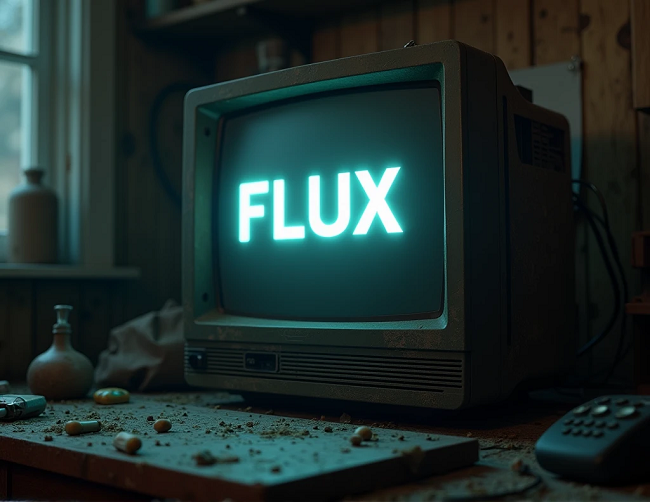
This comprehensive review compares Flux AI with Stable Diffusion 3 and SDXL, evaluating their strengths, weaknesses, and overall performance. Whether you're a digital artist, content creator, or just curious about AI technology, this article will help you understand why Flux AI might be the best choice for your needs.
What Makes Flux AI Stand Out?
Flux AI has emerged as a standout in the AI image generation landscape due to several key advantages:
Accurate Hands, Fingers, and Text Generation
Flux AI excels where many other AI image generators struggle - accurately rendering hands, fingers, and text. These elements have traditionally been problematic for AI models, often resulting in distorted or unrealistic images. However, Flux AI manages to get these details right, making it nearly impossible to distinguish its images from real photos.

Superior Prompt Adherence and Realism
When comparing Flux AI with Stable Diffusion and SDXL, one of the most notable differences is its ability to follow complex prompts. For instance, when tasked with generating a scene involving three children in a red car, Flux AI accurately placed each child and captured the finer details like facial expressions and props, such as slices of watermelon. This level of detail and adherence to the prompt is what sets Flux AI apart from its competitors.
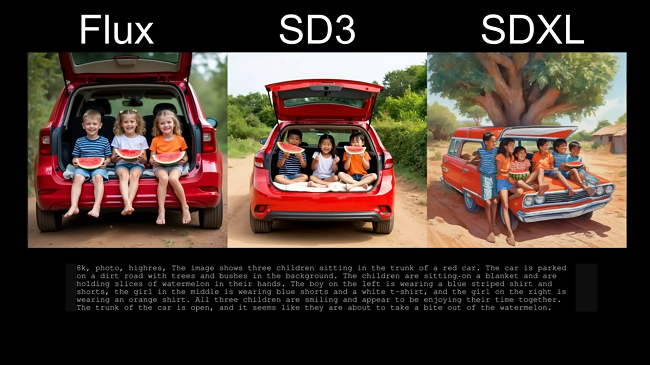
Comparing Flux AI with Stable Diffusion 3 and SDXL
Flux AI has quickly gained attention as a formidable competitor to established models like Stable Diffusion 3 and SDXL. Here's a detailed comparison based on their features and performance.
Hands-On Comparisons Across Multiple Scenarios
In our tests, Flux AI consistently outperformed Stable Diffusion 3 and SDXL across a variety of challenging scenarios. Whether it was generating a woman playing the bass guitar on stage, ensuring the correct number of strings, or creating a realistic image of a girl lying on the grass, Flux AI delivered higher quality and more accurate images. The ability of Flux AI to handle intricate details, such as correctly formed hands and natural-looking postures, makes it a superior choice for those seeking high-quality AI-generated images.
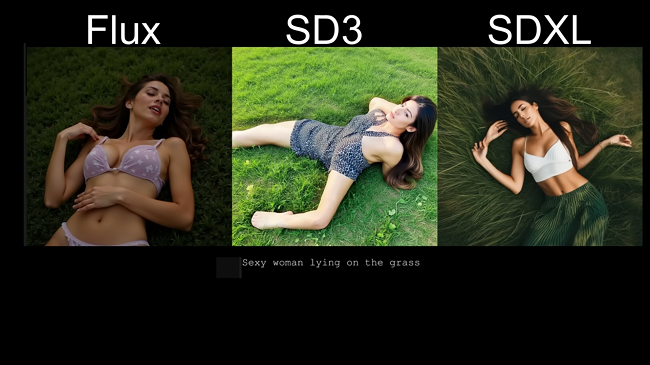
Quality of Image Rendering and Realism
When it comes to overall image quality, Flux AI image outshines its competitors. While Stable Diffusion 3 and SDXL produce impressive results, they often fall short in rendering certain elements realistically. For example, SDXL might produce blurred faces or extra limbs, while Flux AI maintains consistency and realism across all aspects of the image. This makes Flux AI particularly effective for creating images that need to be indistinguishable from real-life photographs.
Understanding the Different Flux AI Models
Schnell, Dev, and Pro: Which Model Is Right for You?
Flux AI offers three distinct models - Schnell, Dev, and Pro - each catering to different needs. Schnell is the fastest and most resource-efficient, though it delivers lower quality. Dev offers better quality and is available for free non-commercial use, making it a great option for enthusiasts and small projects. Pro, the top-tier model, provides the highest quality but comes at a cost, suitable for professional and commercial applications.
Dev:
https://huggingface.co/spaces/black-forest-labs/FLUX.1-dev
Pro:
https://docs.bfl.ml/
Schnell:
https://huggingface.co/spaces/black-forest-labs/FLUX.1-schnell
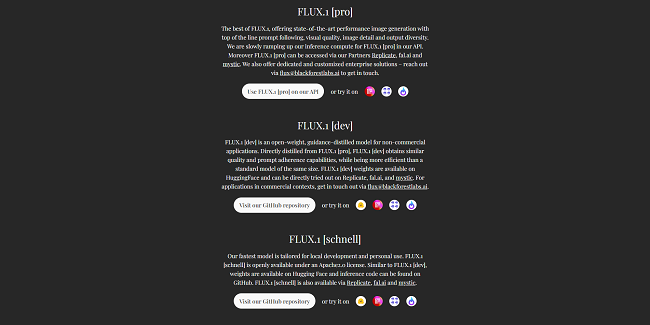
The Architecture Behind Flux AI's Success
Flux AI's success can be attributed to its hybrid architecture that combines diffusion and transformer models. This allows it to not only generate high-quality images but also understand and follow complex prompts more effectively. With advanced features like rotary positional embeddings and parallel attention layers, Flux AI stands out as a leader in the AI image generation space.
Is Flux AI the Future of AI Image Generation?
With its superior image quality, prompt-following ability, and innovative architecture, Flux AI is setting a new standard in the world of AI image generators. While tools like Stable Diffusion 3 and SDXL remain popular, Flux AI's consistent performance and attention to detail make it a compelling choice for anyone in need of top-tier AI-generated imagery. Whether you're considering a switch from other platforms or starting with AI-generated images, Flux AI offers an unparalleled experience.
Conclusion
In conclusion, the Flux AI image generator proves to be a game-changer in the world of AI-driven creativity. Its ability to accurately follow complex prompts and produce realistic images sets it apart from competitors like Stable Diffusion 3 and SDXL. Whether you're a professional or an enthusiast, Flux AI offers tools and models tailored to different needs, ensuring that you can create stunning, lifelike images with ease.
You can try SeaArt's "Flux AI image generator" Featured Tool for a Quick Experience of Flux's Power.

